North Sea oil and gas: what UK government previously said - as it opens new licensing round for exploration
and live on Freeview channel 276
The UK government has come under fire for opening a new licensing round for oil and gas exploration in the North Sea, despite warnings from environmental experts.
Nearly 900 locations are being offered for exploration, with as many as 100 licences set to be awarded. This decision comes after international climate scientists said fossil fuel projects should be closed down, not expanded.
Advertisement
Hide AdAdvertisement
Hide AdExperts have also warned there can be no new projects if there is a chance of keeping global temperature rises under 1.5 degrees celsius, a target the UK has committed to contributing to. Campaigners at Greenpeace meanwhile said the decision to launch the licensing round was “possibly unlawful” and said they will be “carefully examining opportunities to take action”.
Prime Minister Liz Truss has assured the public that the move will “secure [the UK’s] long-term energy supply”, get “better energy prices” for people and “reduce reliance on authoritarian regimes”. Business Secretary Jacob Rees-Mogg also said the new exploration will boost energy security and support skilled jobs.
So, if it’s against the recommendations of climate scientists, why has the government decided to expand oil and gas exploration, what has the reaction been - and does it align with what’s been said before? Here’s what you need to know.
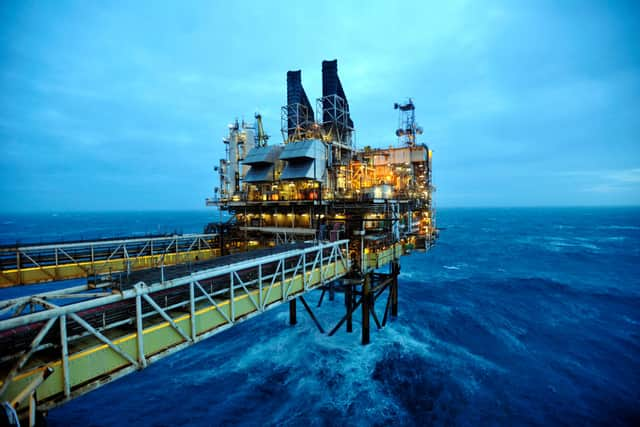

What has the government previously said about oil and gas exploration?
In a report released in February of this year, the government’s own climate change advisers said it would be best to stop using fossil fuels.
Advertisement
Hide AdAdvertisement
Hide AdWhile at the time many Tory MPs were advocating for the expansion of North Sea oil and gas, saying it would lower bills, climate change advisers argued energy produced in the UK would be sold internationally and therefore barely reduce the consumer price. They told the government wind and solar power, as well as home insulation, is a better route.
The Climate Change Committee also warned that new fossil fuel projects in the North Sea would, in some cases, not deliver gas until 2050. Coincidentally, this is also the date the UK has committed to being almost completely weaned off gas, as per discussions that took place at COP26.
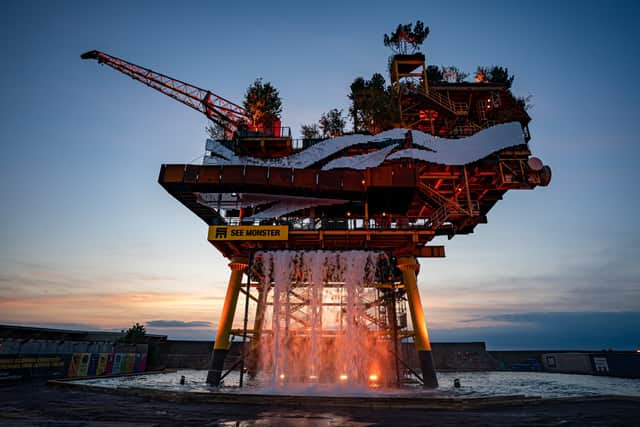

One of the next major comments within this conversation came from ousted Prime Minister Boris Johnson, who, in his final major policy speech, told his successor to “go big, go nuclear” as he promised £700 million in funding for the Sizewell C nuclear power plant as part of the government’s plans to improve the UK’s energy security.
He said that Sizewell C, which could power the equivalent of six million homes, would have cut fuel bills by £3 billion if it had been operational this year. The Uxbridge and South Ruislip MP added that the spike in energy prices driven by Vladimir Putin’s invasion of Ukraine was an example of why nuclear energy capacity was so needed.
Advertisement
Hide AdAdvertisement
Hide AdIn what seemed to be a thinly-veiled dig at Truss, who had frequently spoken of her support for fracking, Johnson added: “I tell everybody who thinks ‘hydrocarbons are the only answer, we should get fracking’ and all that, offshore wind is now the cheapest form of electricity in this country. Offshore wind is nine times cheaper than gas.”
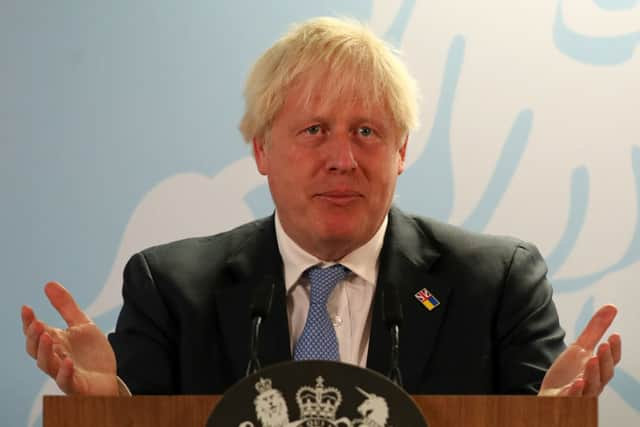

Why is the government now expanding exploration in the North Sea?
While previous government figures may have been reluctant to dive back into methods such as fracking or fossil fuels, the new Prime Minister has made clear from the outset that she’s interested in expanding exploration in the North Sea.
During her Tory leadership campaign, she said she wanted to see a push for new drilling in the North Sea. When she announced the £2,500 energy bill freeze, the South West Norfolk MP also said she wanted to lift the fracking ban and look at new North Sea oil and gas contracts - adding that “extraordinary times call for extraordinary measures”.
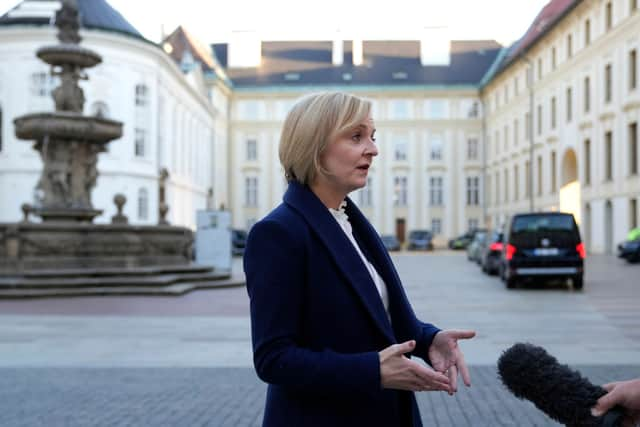

In a string of tweets today (7 October), Truss defended the decision by arguing the energy crisis called for it: “We have taken decisive action to support households and businesses with their energy costs – and we’re working to make sure the United Kingdom is never in this position again by tackling the root cause of the energy crisis. That means producing more energy here at home.”
Advertisement
Hide AdAdvertisement
Hide AdShe also added that the government is also speeding up deployment of renewables, including hydrogen, solar and wind, and has been holding discussions about progressing Sizewell C and building more nuclear power stations.
What has the reaction been?
Green Party co-leader Adrian Ramsay said keeping global warming to 1.5 degrees celsius requires leaving fossil fuels “in the ground”. He also echoed the words of the government’s climate advisers from February, claiming that any new production, even if fast-tracked, would not be available for years and so would not help to address the current crisis.
“The Government’s claim that burning ever more fossil fuels from the North Sea will help the UK meet its international obligations to become net-zero by 2050 has no connection to reality,” he said.
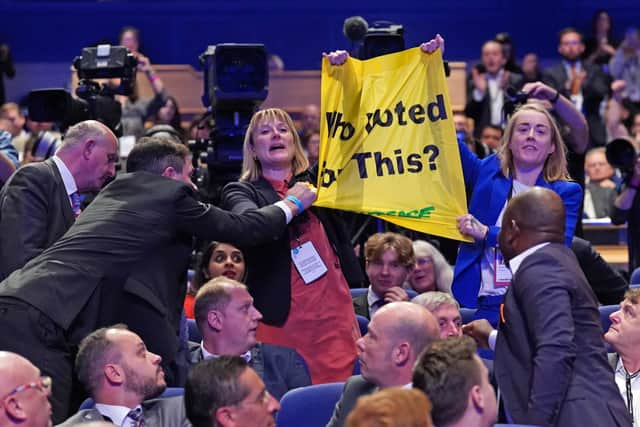

Philip Evans, energy transition campaigner for Greenpeace UK, said: “New oil and gas licences won’t lower energy bills for struggling families this winter or any winter soon nor provide energy security in the medium term. New licences – and more importantly more fossil fuels – solve neither of those problems but will make the climate crisis even worse.”
Advertisement
Hide AdAdvertisement
Hide AdGreenpeace campaigners recently interrupted Prime Minister Truss’ speech at the Conservative Party Conference, holding up a “who voted for this?” sign in opposition of the new Government’s support for fracking.
Comment Guidelines
National World encourages reader discussion on our stories. User feedback, insights and back-and-forth exchanges add a rich layer of context to reporting. Please review our Community Guidelines before commenting.
